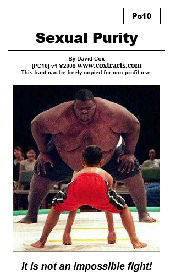Handbook of Ethics.
by Archibald Alexander
(1914)
This is a book on Christian ethics. Some of the topics in this book are Ethic, aesthetics, Socrates, Determinism, Spontaneity, Optimism, Pragmatism, Activism, and Vitalism.
CHAPTER I
THE NATURE AND SCOPE OF ETHICS…………… 9
I. General Definition. II. Distinctive Features–1. Ideal; 2. Norm; 3. Will. III. Is Ethics a Science? IV. Relation to–1. Logic; 2. Aesthetics; 3. Politics. V. Dependence upon–1. Metaphysics; 2. Psychology.
CHAPTER II
THE POSTULATES OF CHRISTIAN ETHICS…………. 22
I. Philosophical Ethics. II. Dogmatics. III. Theological Presuppositions– 1. Christian Idea of God. 2. Christian Doctrine of Sin. 3. Human Responsibility. IV. Authority and Method.
CHAPTER III
ETHICAL THOUGHT BEFORE CHRIST…………… 36
I. In Greece and Rome–Socrates, Plato, Aristotle, Stoics. Stoicism and St. Paul. II. In Israel–1. Law; 2. Prophecy; 3. Poetry. Preparatory Character of pre-Christian Morality.
SECTION B–PERSONALITY
CHAPTER IV
THE ESTIMATE OF MAN……………….. 55
I. Conflicting Views of Human Nature– 1. Man by nature Morally Good. 2. Man by nature Totally Depraved. 3. The Christian View. II. Examination of Man’s Psychical Nature– 1. The Unity of the Soul. 2. The Divine in Man. 3. The Physical and Mental Life. III. Appeal of Christianity to the Mind.
CHAPTER V
THE WITNESS OF CONSCIENCE…………….. 68
I. Treatment of Conscience– 1. In Greek Poetry and Philosophy. 2. In Old Testament. 3. In New Testament. II. Nature and Origin of Conscience– 1. Intuitionalism. 2. Evolutionalism. III. Validity of Conscience– 1. The Christian View. 2. The Moral Imperatives. 3. The Permanence of Conscience
CHAPTER VI
‘THE MIRACLE OF THE WILL‘…………….. 82
Is Man free to choose the Good? Creative Power of Volition. Aspects of Problem raised. I. Scientific– Man and Physical Necessity. II. Psychological– Determinism and Indeterminism. Criticism of James and Bergson. Spontaneity and Necessity. III. Theological– Divine Sovereignty and Human Freedom. Jesus and Paul–Challenge to the Will. Freedom–a Gift and a Task.
SECTION C–CHARACTER
CHAPTER VII
MODERN THEORIES OF LIFE……………… 99
I. Naturalistic Tendency– 1. Materialistic– (1) Idyllic or Poetic–Rousseau. (2) Philosophic–Feuerbach. (3) Scientific–Haeckel. 2. Utilitarian–Hobbes, Bentham, Mill. 3. Evolutionary–Spencer. 4. Socialistic–Marx, Engels. 5. Individualistic– (1) Aestheticism–Goethe, Schiller. (2) Subjectivism– (a) Pessimism–Schopenhauer. (b) Optimism–Nietzsche. II. Idealistic Tendency– 1. Kant–Categorical Imperative. 2. Fichte and Hegel–Idea of Personality. 3. James–Pragmatism. 4. Bergson–Vitalism. 5. Eucken–Activism.
CHAPTER VIII
THE CHRISTIAN IDEAL………………. 127
Life, as the highest Good. I. Life, in its Individual Aspect– 1. Its Intensity. 2. Its Expansion. 3. ‘Eternal Life.’ II. Life, in its Social Aspect– 1. ‘The Kingdom of God’– Eschatological Interpretation. Untenableness of Interimsethik. 2. Christ’s View of Kingdom– (1) A Present Reality–a Gift. (2) A Gradual Development–a Task. (3) A Future Consummation–a Hope. III. Life, in its Godward Aspect– 1. Holiness. 2. Righteousness. 3. Love.
CHAPTER IX
STANDARD AND MOTIVE……………….. 146
I. Christ as Example– 1. Portrayal by Synoptists– (1) Artlessness of Disciples. (2) Naturalness of Jesus, 2. Impression of Power– (1) Power of Loyalty to Calling. (2) Power of Holiness. (3) Power of Sympathy. 3. Value of Jesus’ Example for Present Life– Misconception of Phrase ‘Imitation of Christ.’ II. The Christian Motive– 1. Analysis of Springs of Conduct– (1) Divine Forgiveness. (2) Fatherhood of God. (3) Sense of Vocation. (4) Brevity of Life. (5) Idea of Immortality. 2. Question as to Purity of Motive– (1) Charge of Asceticism. (2) Charge of Hedonism. 3. Doctrine of Rewards– (1) In Philosophy. (2) In Christianity–(a) Jesus; (b) Paul.
CHAPTER X
THE DYNAMIC OF THE NEW LIFE……………. 164
I. Divine Power– Operative through Christ’s 1. Incarnation and Life. 2. Death and Sacrifice. 3. Resurrection and Indwelling Presence. II. Human Response– 1. Repentance– (1) Contrition–Confession–Resolution. (2) Question of ‘Sudden Conversion.’ (3) ‘Twice Born’ or ‘Once Born.’ 2. Faith– (1) In Ordinary Life. (2) In Teaching of Jesus. (3) The Pauline Doctrine. 3. Obedience– (1) Active Appropriation of Grace. (2) Determination of Whole Personality. (3) Gradual Assimilation.
SECTION D–CONDUCT
CHAPTER XI
VIRTUES AND VIRTUE………………… 183
Definition of Virtue. I. The Natural Basis of the Virtues– ‘The Cardinal Virtues.’ II. The Christian Transformation of the Virtues– 1. The New Testament Account. 2. Cardinal Virtues, Elements of Christian Character. 3. Place of Passive Virtues in Life. III. The Unification of the Virtues– 1. Unity in Relation to God. 2. Love, Spring of all Virtues, 3. ‘Theological Virtues,’ Aspects of Love.
CHAPTER XII
THE REALM OF DUTY………………… 199
I. Aspects of Duty– 1. Duty and Vocation. 2. Conflict of Duties– (1) Competing Obligations. (2) ‘Counsels of Perfection.’ (3) Indifferent Acts. 3. Rights and Duties– (1) Claim of ‘Natural Rights.’ (2) Based on Worth of Individual. (3) Christian Idea of Liberty. II. Spheres of Duty– 1. Duties in Relation to Self– (1) Self-Respect. (2) Self-Preservation. (3) Self-Development– Self-regarding Duties not prominent in Scripture. Self-Realisation through Self-Sacrifice. 2. Duties in Relation to Others– (1) Regard for Man: Brotherly Love– (a) Justice. (b) Veracity. (c) Judgment. (2) Service– (a) Sympathy. (b) Beneficence. (c) Forgiveness. (3) Example and Influence. 3. Duties in Relation to God– (1) Recognition. (2) Obedience–Passive and Active. (3) Worship–Reverence, Prayer, Thanksgiving.
CHAPTER XIII
SOCIAL INSTITUTIONS………………. 230
I. The Family– 1. Origin and Evolution of Family. 2. Christian view– (1) Christ’s Teaching on Marriage. (2) State Regulation and Eugenics. (3) Tendencies to Disparagement. 3. Family Relationships– (1) Parents and Children. (2) Woman’s Place and Rights. (3) Child Life and Education. II. The State– 1. Basis of Authority– Tolstoy and Anarchism. ‘Social Contract.’ 2. State, in New Testament. 3. Modern Conceptions– Views of Augustine and Hegel. (1) Duty of State to Citizens. (2) Duty of Citizens to State. (3) The Democratic Movement– Reciprocity of Service and Sense of Brotherhood. III. The Church– 1. Relation of Church and State. 2. Purpose and Ideal of Church– (1) Worship and Edification. (2) Witness to Christ. (3) Evangelisation of Mankind. 3. The Church and the Social Problem– (1) Christ’s Teaching as to Industry and Wealth. (2) Attitude of Early Church to Society. (3) Of Roman and Reformed Churches. 4. Duty of Christianity to the World– The Missionary Imperative and Opportunity.
CHAPTER XIV
CONCLUSION–THE PERMANENCE OF CHRISTIAN ETHICS……. 245
BIBLIOGRAPHY…………………… 248
INDEX……………………… 263
Post Views: 88

pc10 Sexual Purityis an exhortation to purity in sexual matters for the Christian. We look at various aspects of the issue.
Topics: It is not an impossible fight! | The Biblical Model | Homosexuality and Prostitution | Nudity and the Mind | Self-Stimulation | Resisting the Temptation.
Excerpts: Job 31:1 I made a covenant with mine eyes; why then should I think upon a maid? Job understood that sexual sin begins with the sight, and the seeing before desiring. Job made a covenant with himself, a commitment that he would not look on young women to desire them or to let his imagination run wild with them even their image or in his thoughts. Equally, Jesus taught us in Mat. 5:28 that even thinking sinful thoughts without doing them is as sinful as actually doing them. This is an amplification of Exo 20:17 “Thou shalt not covet thy neighbor’s wife”. David saw before taking (2Sam 11:2).
Fasting is to teach us that the body does not control over us, and this is exactly what is necessary for people with this problem. This sin is pinned to the thoughts, “for as he thinketh in his heart, so is he” Pro 23:7. “I can do all things through Christ which strengtheneth me” Phil 4:13.
Read the Tract: pc10 Sexual Purity.

Buy me Steak Taco! You know, I work hard at my websites trying to provide you with good material that is sound doctrinally-speaking and of interest to God's people. It is hard work, but I don't mind doing it, and I feel called to the ministry, and God will bless me after all is said and done. But in the meantime, I do need to cover my expenses. I have a total of 34 websites (half English and half Spanish), and each one costs about $10 per month to keep up. That does not take into consideration my time and effort in writing content. Won't you consider at least a one time donation to this ministry of $10 or $20 dollars? It would be really great if you could gift me and my wife this money so that we could enjoy eating out at least once in a while. (I pay the expenses for these sites out of our living expenses.) God will richly bless you and repay you for your generosity. 1 Timothy 5:18 For the scripture saith, Thou shalt not muzzle the ox that treadeth out the corn. And, The labourer is worthy of his reward. If you received some value from my websites, consider at lest a small donation. A big donation would really be nice, too though.
Donate to David Cox Ministries.
MySwordmodules is a website dedicate to the MySword Bible Program for Androird devices. We host MySword Modules.

Have you ever eaten Fried Ice Cream! Donate! It is delicious, like apple pie with vanilla ice cream on top. But you know that you cannot have what is good without somebody paying for it. If you have enjoyed things on my website, please consider helping me out on the expenses and keeping it on the Internet. Can you consider at least a one time donation to this ministry of $10 or $20 dollars? I have a monthly total of about 96 gigabytes total being downloaded monthly from all of my websites. Be a blessing to me and donate any amount. It would be really great if you could gift me and my wife (she wants oa fried ice cream too) this money so that we could enjoy eating out at least once in a while. (I pay the expenses for these sites out of our living expenses.) God will richly bless you and repay you for your generosity. 1 Timothy 5:18 For the scripture saith, Thou shalt not muzzle the ox that treadeth out the corn. And, The labourer is worthy of his reward. If you received some value from my websites, consider at least a small donation. A big donation would really be nice, too, though.
---->>>>Donate to David Cox Ministries.<<<<----
They deep freeze the ice cream ball, and coat it with batter only a few seconds before they deep fry it, and then only fry it for a few seconds.




there is no download link…
I added Alexander-Handbook of Christian Ethics link. Try it now. Thanks for bringing it to my attention.